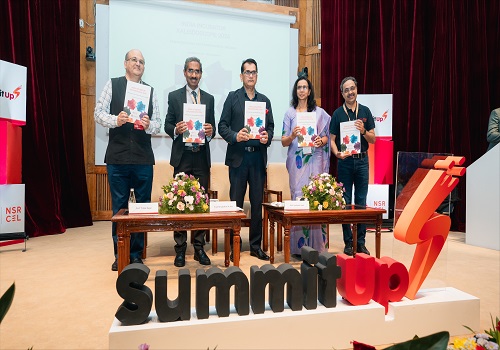
There are more than 1,100 active incubators nurturing startups in the Indian ecosystem, according to a new report on Friday.
The joint research report, ‘India Incubator Kaleidoscope 2024’ was released by NSRCEL, the startup incubator at IIM Bangalore, and the Centre for Research on Start-ups and Risk Financing (CREST) IIT Madras in Bengaluru.
It showed that the number of incubators in the Indian ecosystem has grown steadily, with Tier I cities housing almost half of all incubators (48 per cent).
Chennai leads with a high proportion of academic incubators (82 per cent), whereas Bengaluru and Gurugram have a high proportion of industry incubators at 71 per cent and 84 per cent respectively.
The incubator density in India is 0.8 incubators per million population, whereas countries like the US, UK, and China range between 8 and 10 incubators per million population, said the report noting that indicates the need for setting up more incubators in the country, said the report.
“In the growth of the Indian startup ecosystem, incubators play a very crucial role, and their contribution has been expanding in recent years. Conceptualised initially to facilitate the formation of start-ups, today incubators perform multiple roles such as bringing together scientific and business expertise, channelising capital to promising start-ups, and increasing awareness of startups in the society,” said Amitabh Kant, G20 Sherpa, and ex-CEO, NITI Aayog, while launching the report.
“Incubators play a crucial role in making entrepreneurship more accessible and inclusive across the country but their activities and impact are not well understood. This report addresses that gap and highlights the need to both raise the level of incubation activity and enhance the quality of incubation efforts nationwide,” added Prof.Srivardhini Jha, Professor of Entrepreneurship, IIM Bangalore and Chairperson of NSRCEL.
Further, the report showed only 8.2 per cent of all startups undergo incubation. But 10 per cent of the incubators support 98 per cent of the startups that are incubated.
“This highlights an urgent need to improve the performance of incubators that are underutilised and to actively engage in outreach efforts to raise awareness about the benefits of incubation,” the report said.
It noted that incubation is sought after by students, young professionals, women founders, and those with modest financial resources.
Deep tech sectors such as AI/ML, data analytics, biotech, and other sectors showed a high incubation rate — upward of 12 per cent.
The incubated startups (27.1 per cent) also secured the first round of funding earlier than non-incubated (15.4 per cent), the report said.
Despite being smaller in number, incubated startups have also won more awards in all leading startup awards and are engaged more actively in the creation of Intellectual Property.
The contribution of the incubated startups to the economy has also been significant.
The report showed that the annual average revenues in the initial years for every 100 incubated startups has been about 1,590 crores. The average value of assets for every 100 incubated startups by the ninth year from incorporation has been estimated at Rs 10,627 crore.
However, the revenue performance of startups associated with industry incubators is 50 per cent higher as compared to those supported by academic incubators, the report said.
